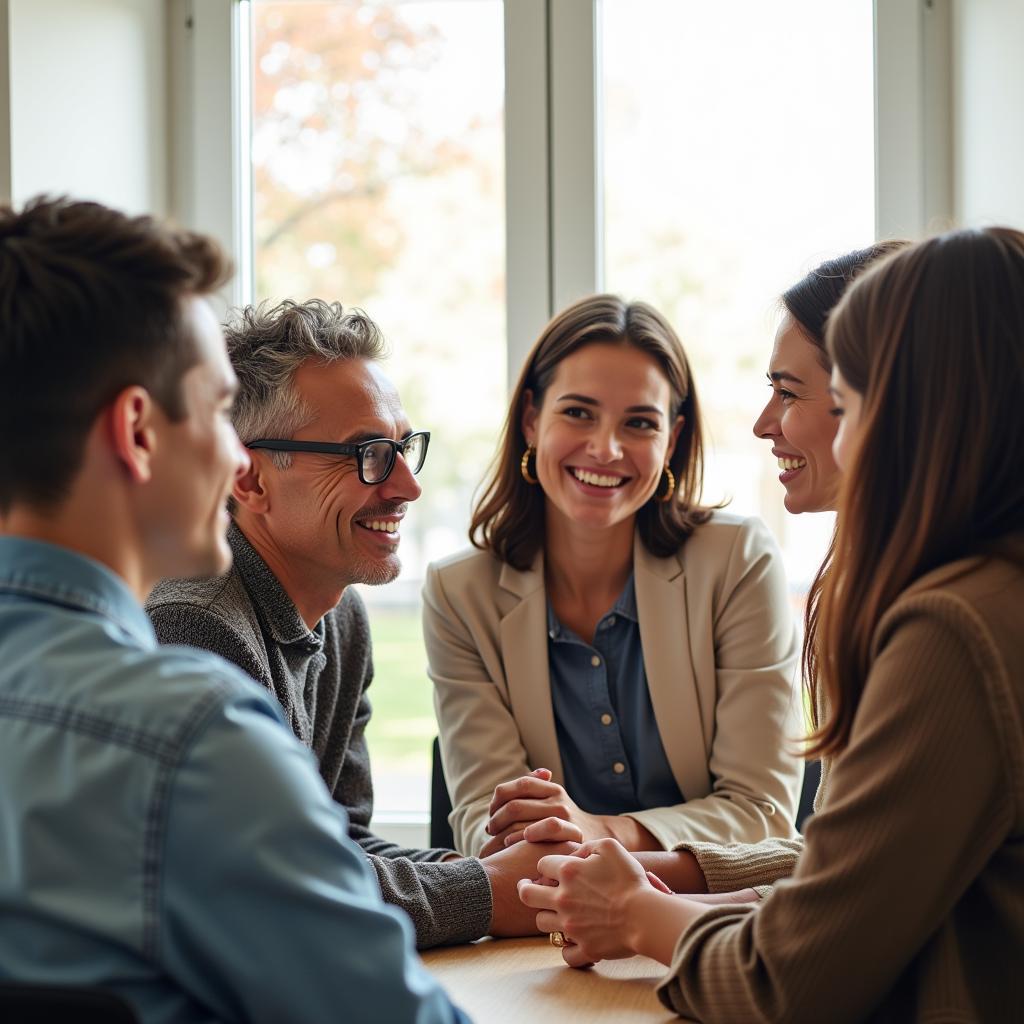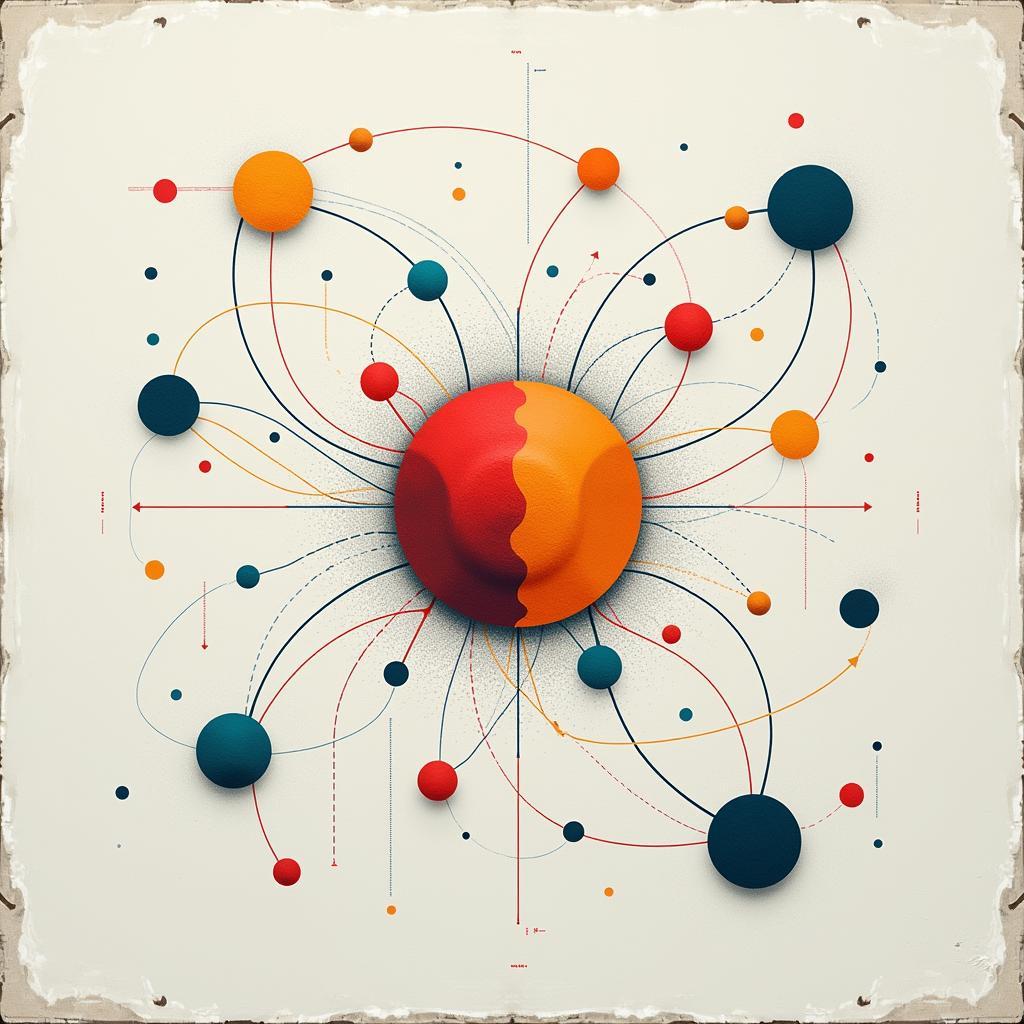The concept of “Self Society” explores the intricate relationship between individual identity and the social structures that shape us. From our earliest interactions, we begin to develop a sense of self in relation to others, constantly negotiating our place within the complex tapestry of societal norms, expectations, and influences. This dynamic interplay between the individual and society is a fundamental aspect of the human experience. Let’s delve deeper into this fascinating relationship, exploring how our self-concept is molded by social forces and how, in turn, we contribute to the evolution of society.
How Society Shapes the Self
Society acts as a powerful sculptor, molding our sense of self through a myriad of channels. Family, education, culture, and even media consumption all contribute to the development of our values, beliefs, and behaviors. We internalize societal norms and expectations, often unconsciously, and these become the building blocks of our self-identity. This process of socialization is crucial for our integration into society, enabling us to navigate social interactions and understand our roles within the larger community. For a deeper understanding of this transition, check out our article on self to society.
What are some of the key ways society shapes our self-concept?
- Family Influence: Our families are the first social group we encounter, and they play a pivotal role in shaping our early understanding of the world and ourselves. Parental values, sibling dynamics, and family traditions all contribute to the foundation of our self-esteem, sense of belonging, and personal identity.
- Educational Systems: Schools and educational institutions transmit knowledge, but they also instill social values and expectations. Curriculum, teaching methods, and peer interactions all influence how we see ourselves and our place in society.
- Cultural Norms: Culture provides a framework for understanding the world, influencing our beliefs, customs, and behaviors. Cultural norms dictate what is considered acceptable and desirable, impacting our self-perception and how we present ourselves to others.
- Media Consumption: The media, in all its forms, plays a significant role in shaping our perceptions of the world and ourselves. From television and movies to social media, the messages we consume can influence our values, aspirations, and even our body image.
 Self-Discovery Through Social Interaction
Self-Discovery Through Social Interaction
The Self as an Agent of Change
While society undeniably shapes the self, the relationship is not a one-way street. Individuals are not simply passive recipients of societal influence; they are also active agents of change. Through our actions, choices, and interactions, we contribute to the ongoing evolution of society. This reciprocal relationship highlights the importance of individual agency in creating a more just and peaceful world. Explore the societal impact of a common tool for self-expression: how has the selfie stick impacted society today.
How can we become agents of positive social change?
- Critical Self-Reflection: Examining our own biases and assumptions is the first step towards fostering positive change. By understanding our own perspectives, we can engage in more meaningful and empathetic interactions with others.
- Promoting Dialogue and Understanding: Open and respectful communication is essential for building bridges between different groups. By engaging in dialogue with those who hold different viewpoints, we can foster greater understanding and cooperation.
- Advocating for Social Justice: Speaking out against injustice and inequality is crucial for creating a more equitable society. By using our voices to advocate for positive change, we can contribute to a more just and peaceful world.
- Embracing Diversity and Inclusion: Celebrating the richness of human diversity is essential for building a strong and vibrant society. By embracing inclusivity, we create a sense of belonging for all members of our community.
Dr. Anya Sharma, a renowned sociologist, emphasizes the interconnectedness of individual action and societal progress: “Every individual has the power to contribute to the collective good. By embracing our roles as agents of change, we can create a ripple effect that transforms society.”
The Pursuit of Self-Discovery in a Complex World
Navigating the complex relationship between self and society is a lifelong journey of self-discovery. As we interact with the world around us, we continually refine our sense of who we are and our place within the larger community. This ongoing process of self-discovery is both challenging and rewarding, offering opportunities for personal growth and contributing to a more harmonious society. You might find the American Society of Hematology Self-Assessment Program helpful in your journey.
Professor Michael Rodriguez, a leading expert in social psychology, offers this insightful perspective: “The journey of self-discovery is not a solitary pursuit. It is intricately woven into the fabric of our social interactions and experiences.”
How does self-interest contribute to societal economic goals?
Self-interest can, in certain contexts, contribute to the achievement of societal economic goals. The pursuit of individual economic gain can drive innovation, competition, and productivity, ultimately benefiting the wider economy. However, it’s crucial to balance self-interest with ethical considerations and social responsibility to ensure equitable distribution of resources and prevent exploitation. Learn more about this complex relationship in our dedicated article how does self interest help achieve society’s economic goals.
 Self and Society Intertwined
Self and Society Intertwined
In conclusion, “self society” highlights the dynamic and reciprocal relationship between the individual and the social structures that shape us. By understanding this complex interplay, we can become more conscious of our own roles in shaping a more just, peaceful, and harmonious world.
FAQ
- How does society influence self-esteem?
- What is the role of culture in shaping identity?
- How can we balance individual needs with societal expectations?
- What are the challenges of self-discovery in the digital age?
- How can we promote positive social change through individual action?
- How do social movements impact individual identity?
- What is the importance of self-awareness in fostering peaceful relationships?
Need more resources? Explore our collection of Rebel Society shirts.
For support, contact us 24/7: Phone: 02043854663, Email: [email protected], Address: Khu 34, Bắc Giang, 260000, Vietnam.